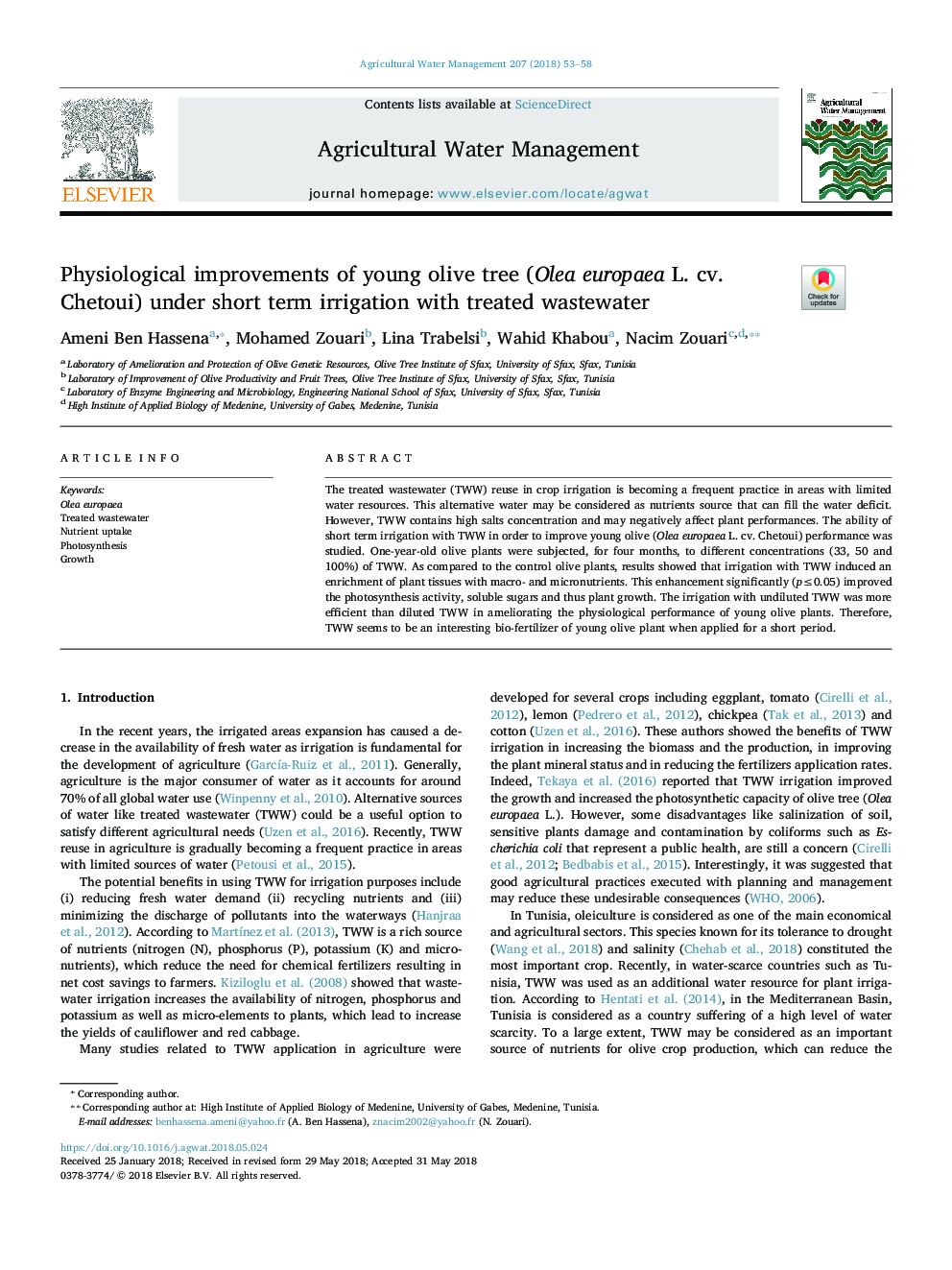| Article ID | Journal | Published Year | Pages | File Type |
|---|---|---|---|---|
| 8872829 | Agricultural Water Management | 2018 | 6 Pages |
Abstract
The treated wastewater (TWW) reuse in crop irrigation is becoming a frequent practice in areas with limited water resources. This alternative water may be considered as nutrients source that can fill the water deficit. However, TWW contains high salts concentration and may negatively affect plant performances. The ability of short term irrigation with TWW in order to improve young olive (Olea europaea L. cv. Chetoui) performance was studied. One-year-old olive plants were subjected, for four months, to different concentrations (33, 50 and 100%) of TWW. As compared to the control olive plants, results showed that irrigation with TWW induced an enrichment of plant tissues with macro- and micronutrients. This enhancement significantly (pâ¤0.05) improved the photosynthesis activity, soluble sugars and thus plant growth. The irrigation with undiluted TWW was more efficient than diluted TWW in ameliorating the physiological performance of young olive plants. Therefore, TWW seems to be an interesting bio-fertilizer of young olive plant when applied for a short period.
Related Topics
Life Sciences
Agricultural and Biological Sciences
Agronomy and Crop Science
Authors
Ameni Ben Hassena, Mohamed Zouari, Lina Trabelsi, Wahid Khabou, Nacim Zouari,
